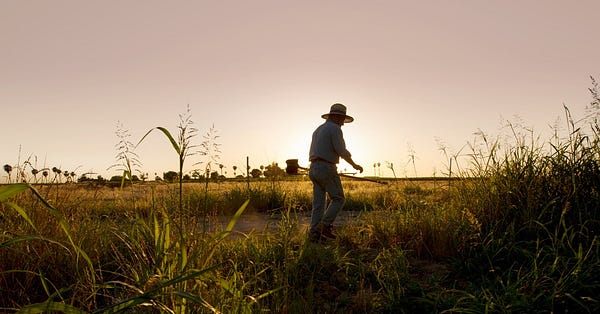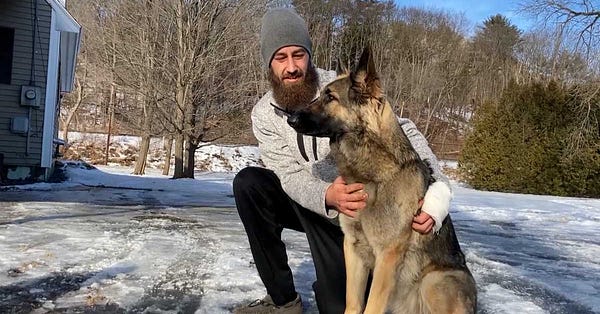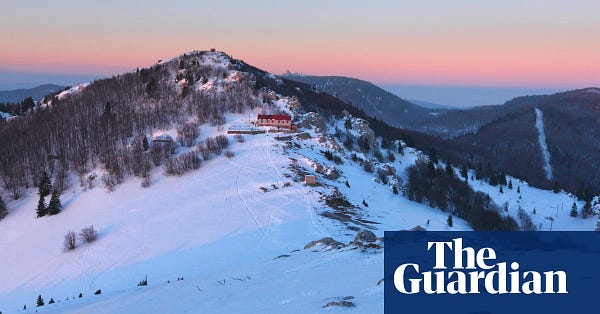This week CRN paying subscribers learned about:
A Canadian study of 1.3 million patients involving nearly 3,000 surgeons that found “women who are operated on by a male surgeon are much more likely to die”
Background on why the Kazakhstan uprising is happening now
The first female U.S. Navy captain to command a U.S. nuclear carrier
Francis Fukuyama’s powerful essay explaining the global geopolitical impact from Jan. 6
JAMA’s series of journal articles calling for a “new normal” in the nation’s approach to fighting the coronavirus and other viral threats
John Deere’s new self-driving tractor
How to sync your calendar with 2022’s important political dates via Political Wire (go to bottom of page and choose your calendar — highly recommended!)
Good news about good samaritans who distributed fresh bread to drivers trapped on I-95 during the snowstorm… and much more.
Stop missing what you need to know — and start receiving the newsletter daily. Click the red button:
Welcome to our weekend edition, a combination of the world, profiles, and good reads that you might not see during the week.
Subscriber benefit (today, 3 pm ET): What Happens Next, an extraordinary, invitation-only weekly call with academics and experts across economics, industry, medicine, history, literature, and more.
Today’s speakers include:
Dr. Ari Ciment, pulmonologist at Mt. Sinai Hospital in Miami Beach: Using anti-viral medications with Omicron
Jay Newman, formerly Elliott hedge fund: Writing a blockbuster first novel
Listen & Register: Newsletter subscribers can listen to today’s call here.
The World
The Biden administration and its allies are assembling a punishing set of financial, technology and military sanctions against Russia that they say would go into effect within hours of an invasion of Ukraine, hoping to make clear to President Putin the high cost he would pay if he sends troops across the border. Officials described the plans for the first time, just ahead of Monday’s negotiations to defuse the crisis with Moscow, one of the most perilous moments in Europe since the end of the Cold War. The plans the U.S. has discussed with allies in recent days include cutting off Russia’s largest financial institutions from global transactions, imposing an embargo on American-made or American-designed technology needed for defense-related and consumer industries, and arming insurgents in Ukraine who would conduct what would amount to a guerrilla war against a Russian military occupation, if it comes to that. (New York Times)
Manchin’s $1.8 trillion spending offer appears no longer to be on the table: The week before Christmas, Sen. Joe Manchin III sent the White House a $1.8 trillion counteroffer to President Biden’s Build Back Better agenda that included substantial funds for climate, health-care and education initiatives. About four weeks later, the West Virginia Democrat has made clear that he does not currently support advancing even that offer following a breakdown in negotiations between Manchin and the White House right before Christmas. (Washington Post)
As more teachers’ unions push for remote schooling, parents worry — and so do Democrats. Chicago teachers have voted to go remote. Other unions are agitating for change. For Democrats, who promised to keep schools open, the tensions are a distinctly unwelcome development. (New York Times)
‘Hottest it’s ever been’ — why the U.S. labor market is stronger than it seems: Low unemployment and high wage growth contradict weak jobs growth figures. Beyond the headline government figures, which showed just 199,000 positions were created in December, a different picture takes shape: economists argue the labor market is in one of the most solid positions in history. Their evidence includes: A plunging unemployment rate; ‘The Great Resignation’ and record job openings; surging wage growth; and data distortions — the initial estimate for headline jobs growth could be revised substantially in future reports due to the difficulty of economic measurement during the pandemic. (Financial Times)
Citigroup will fire U.S. employees at the end of January if they have not been vaccinated or received an exemption, adopting one of the strictest policies among big banks on Wall Street. (Financial Times)
NASA engineers completed the unfolding of the James Webb space telescope: ‘Time machine’ will allow astronomers to study the beginning of the universe shortly after the Big Bang. (The Guardian)

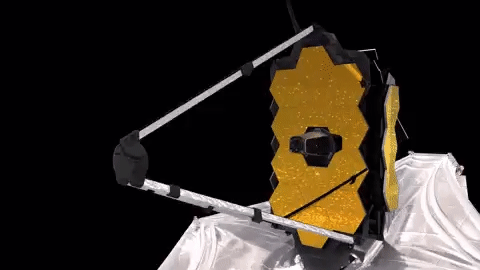
Profiles & Reads
(CR note: Rep. Jamie Raskin just released a new book, “Unthinkable: Trauma, Truth, and the Trials of American Democracy,” and combined with the Jan. 6 anniversary, several profiles on him recently have been written. Because of his personal story and professional background (former law professor), he has become an important political figure, far outweighing the influence he might have as a U.S. Representative in only his third term. If you’re inclined to read just one profile on Raskin, I recommend this one.)
Jamie Raskin, Democracy’s Defender: How the Maryland representative became the man for this historical moment. He was born in 1962 in George Washington University Hospital; his Takoma Park home is less than 10 miles away. (His full name is Jamin Ben Raskin; his parents named him after his paternal grandfather Benjamin, who’d been a plumber, playfully reordering the syllables of the first name.) “My dad used to say that everybody wants to fly like a bird or just stand like a tree, and some people are bird people, and some people are tree people,” he said. “I’ve always been a tree person.” The dad in question was Marcus Raskin, a formidable intellectual who would go on to help found the Institute for Policy Studies, which at its peak was Washington’s top left-leaning think tank. At the time of Jamie’s birth, he was on staff at Kennedy’s National Security Council. “His first day of work was the Bay of Pigs,” Raskin recalled. His mother, Barbara, was a journalist and novelist; her most successful novel, Hot Flashes, spent five months on The New York Times’ bestseller list. His maternal grandfather, Samuel Bellman, was the first Jewish person elected to the Minnesota state legislature (from the St. Louis Park area, famed as the home of Al Franken, Norm Ornstein, Thomas Friedman, and the Coen brothers). (The New Republic)


The pandemic delivered a surprise to Nordic countries: a baby boom. The long, dark winters may be great for making babies, but financial incentives play a bigger role. Since the pandemic began, births in many wealthy countries across the world have plummeted. In 2020 the United States’ fertility rate cratered at its lowest ever, Chinese births plunged 15 percent, and France saw the fewest babies born since World War II. Meanwhile, the Nordic countries—Denmark, Norway, Sweden, Finland, and Iceland—all have maintained their birthrates, and some are puzzled to find themselves in the midst of a pandemic baby boom. After a staggering 16.5 percent more births than normal in 2Q21, Iceland has struggled to increase capacity in its maternity wards. Finland has seen a 7% leap in births, and Denmark and Norway have experienced 3 and 5% bumps, respectively. (Sweden boasts a very modest 1% increase). The increase has baffled experts, even though there are myriad reasons the Nordic countries might have seen a milder dip in births compared to other nations. Northern Europe, for example, wasn’t hit as hard by the virus as their neighbors to the south, and generous financial incentives for families has helped insulate prospective parents from the economic effects of the pandemic. What’s spurring this phenomenon? (National Geographic)


Top Risks 2022: Every year, Eurasia Group produces its list of the top 10 geopolitical risks for the coming year. #1) No zero COVID: In general, developing countries will be hit hardest, and political incumbents will bear the brunt of public anger. Demand for booster shots in wealthier countries will prevent effective vaccines from becoming more widely available. New outbreaks will slow economic growth in emerging markets, and leave poorer governments with more debt. #2) A technopolar world: That’s a reference to the intensifying conflict between governments and the world’s largest tech companies over who will set the rules in the digital space that’s playing an ever-larger role in our lives and our politics. #3) US midterms: In November, Republicans will probably win back majority control of the House of Representatives – and maybe the Senate. If so, Democrats will view GOP control as the illegitimate result of a voter-suppression campaign, and Republicans will see victory as further evidence of 2020 election fraud. Public trust in American political institutions will take an even larger hit. Risks 4-10: China at home; Russia; Iran; Two steps greener, one step back; Empty lands; Corporates losing the culture wars; and Turkey. (Eurasia Group)

How we drained California dry: A story of remaking the land and taking the water until there was nothing left. There is no way to make this drive out of Fresno at harvest’s end, through the dog-tired fields of the most industrialized farm belt in the world, without thinking about water: the idea of it, the feel of it; the form as it falls from the sky as rain and snow, that man captures with his invention and implementation, his magic and plunder, the dam, the ditch, the canal, the aqueduct, the pump, the drip line; the water that gives rise to every animate and inanimate thing that now stretches before my eyes, the vineyard, orchard, cotton field, and housing tract; the water whose too much can destroy us, whose too little can destroy us, whose perfect measure of our needs becomes our superstition and story. You should know that I have written about the matter of California and water a few times before, and I’m not above borrowing from old refrains. In my hunt for new words, I have driven Highway 99 a thousand times through a valley that geologists call the most-altered landscape by human hands in history. I now see the gashes of fresh alterations. What has been done here, by any means necessary, has been done for the want of water. (MIT Technology Review)
(CR note: Why are people on cruises?)
Bare rooms, rotten fruit and boredom — Quarantine life on infected cruises: Welcome to cruises’ omicron surge, where isolation comes with windowless rooms and bare-bones meals. Although passengers must follow strict rules to cruise — with the vast majority of people onboard vaccinated and everyone required to test negative — infections have slipped through. As positive cases mount, passengers and crew have coped with less-than-ideal accommodations. Many interviewed by The Washington Post reported long waits for service, hours without water, bare-bones food and confusion over when and who to test — even as most ships maintain their course. (Washington Post)
Listen, Watch, Read
Have a “Listen, Watch, Read” suggestion for your fellow CRN readers? Tell us about it!
Listen: January 1, 2022, was Public Domain Day. Works from 1926 are open to all — books such as A. A. Milne, Winnie-the-Pooh; Ernest Hemingway, The Sun Also Rises; and T. E. Lawrence, The Seven Pillars of Wisdom (later adapted into the film Lawrence of Arabia) — as is a cornucopia of recorded music: an estimated 400,000 sound recordings from before 1923. (Duke Law School)

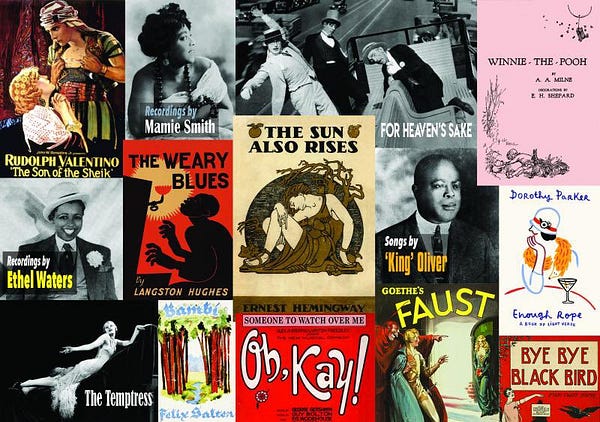
Watch: David Attenborough’s The Green Planet explores the fascinating world of flora: Watching time-lapse technology accelerate a tree’s several-year journey from roots to heavens, or its attritional destruction by leafcutter ants, we might find ourselves thinking of Percy Bysshe Shelley’s reflection that “nought may endure but mutability”. Well, nought but mutability and David Attenborough. The indefatigable 95-year-old has now been presenting prestige nature documentaries for more than two-thirds of the BBC’s century of broadcasting. His latest, The Green Planet, is yet another remarkable product of the symbiosis between his decades of experience and ingenious, cutting-edge filming techniques. (Financial Times)
Read: The 18 books VCs think startup founders need to read: From business advice to a history of mankind, here’s what investors think is fundamental reading for entrepreneurs. (Protocol)
Live Event: Sunday Relaxation Special
Today, Jan. 9, 12-3 pm ET: Foundations of Yoga. This 3-hour workshop explores the varied foundations of an integrated yoga practice, moving beyond western conceptions of yoga as physical exercise. It outlines the complex layers of self as identified in yoga wisdom, along with a deep understanding of how yogic practices affect body, emotion, mind, relationships, and spirit. (Stanford University)
Good News
Dogs-save-the-day special edition:
Dog found on New England highway leads police to scene of crash, injured owner. "They could tell the dog was trying to show them something because she kept trying to get away from them but didn't run away totally," said New Hampshire State Police Lt. Daniel Baldassarre. "It was kind of, 'Follow me. Follow me.' And they did that and, to their surprise, to see the guardrail damaged and to look down to where the dog is looking at, they were almost in disbelief." (WCVB-TV)
‘A real miracle’: dog saves injured hiker stranded in Croatian mountains. Dog kept man warm and safe until rescuers found him. (Agence France Presse)
Have a great Sunday — pet a dog (or cat, if you’re a cat person)! Want to save time and stay smarter? Click the red button:



